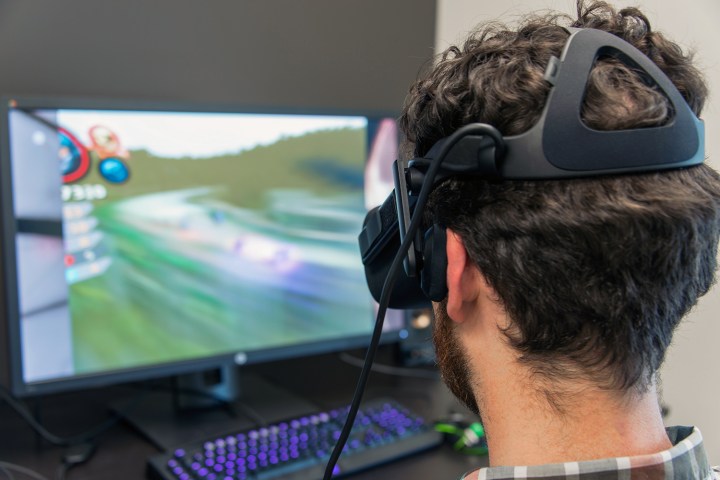
The news arrives by way of unnamed “industry” sources who claim that Oculus VR is in talks with MSI about a backpack PC. Instead of an entirely new backpack PC, Oculus VR and MSI are likely collaborating to optimize the VR One for the Rift headset, thus MSI would sell two versions of its VR One using the same hardware: one best used for the Rift and one optimized for the HTC Vive.
These industry sources believe that the collaboration between MSI and Oculus VR will help the latter company expand into the gaming notebook sector. MSI has already teamed up with HTC to sell bundles consisting of gaming notebooks and the HTC Vive headset and the talks likely include similar bundles packing the Oculus Rift. The Vive-based bundles are expected to hit store shelves in October.
Sources believe the increased presence of Oculus VR in the gaming notebook market will put a lot of pressure on HTC. As it stands now, the first-generation commercial release of the Oculus Rift costs $600 whereas the first-generation HTC Vive headset costs a meatier $800. That makes the Oculus VR device a bit more reasonable price-wise although the headset is still somewhat expensive.
Development of the Oculus Rift essentially set the current consumer-based VR industry on its path. The HTC Vive popped up not long after the Rift became a kit for developers, backed by Valve Software and its Steam digital distribution platform. The competition between the two is somewhat fierce, with the Rift serving as the ‘first’ modern commercial VR headset in development and the Vive backed by a popular PC gaming platform.
Both the Oculus Rift and HTC Vive can be found bundled with desktop PCs. However, the headsets are less likely found with gaming laptops given their mobile nature. The PC stuffed into MSI’s VR One packs a high-end Intel Core i7 processor and a Nvidia GeForce GTX 1070 graphics chip. The unit relies on two hot-swappable batteries promising up to 90 minutes of gameplay and weighs just under eight pounds with the batteries installed.
On the connectivity front, the VR One provides four USB 3.0 ports, one HDMI port, one Mini DisplayPort, one USB Type-C port supporting Thunderbolt 3, a microphone jack, and a headphone jack. The recommended specs for the Oculus Rift include three USB 3.0 ports, one USB 2.0 port, and one HDMI 1.3 port, thus the VR One has the headset covered. Hardware-wise, the Rift demands 8GB of system memory, an Intel Core i5-4590 equivalent or greater processor, and a graphics card equivalent to or better than the Nvidia GeForce GTX 970 or AMD Radeon R9 290.
The MSI VR One PC backpack is slated to arrive in the United States in October. Again, there is a good chance we will see two separate units supporting the HTC Vive and Oculus Rift, so stay tuned.


